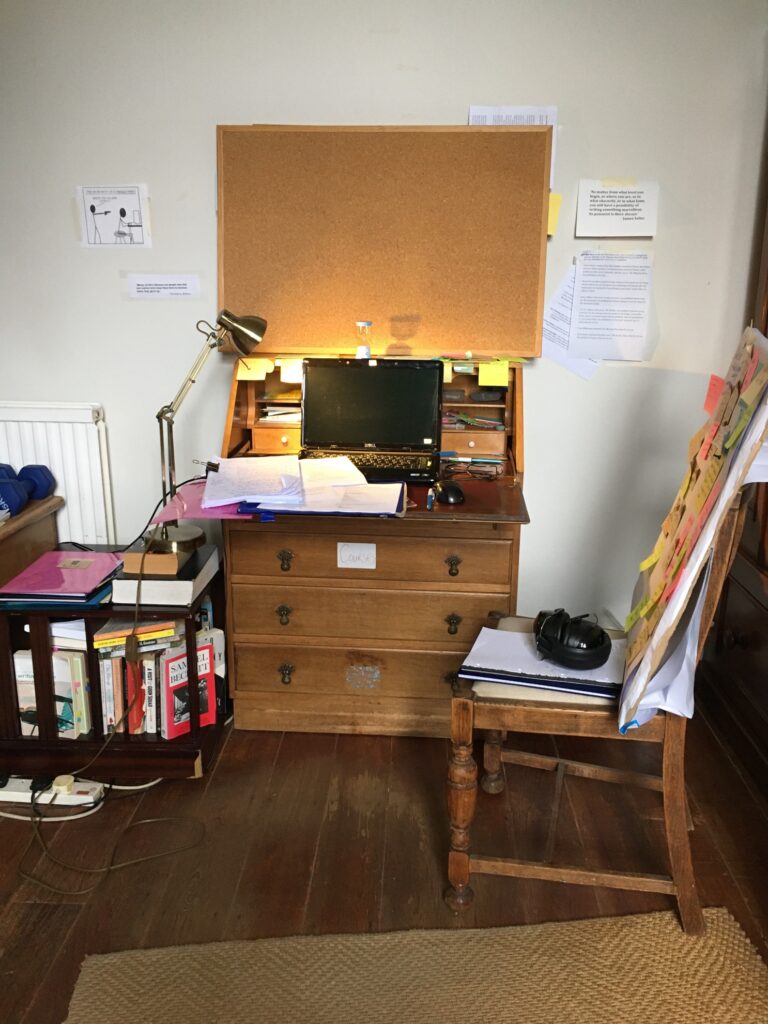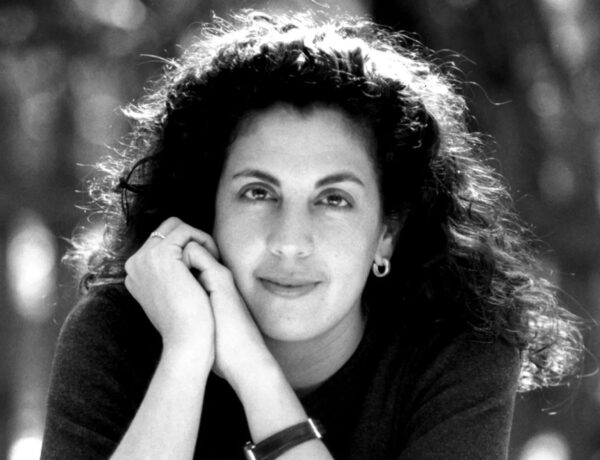Kiare Ladner is a London-based author who grew up in South Africa. As a child, she had a variety of aspirations, including living on a farm, running an orphanage, and being on stage.
As an adult, she has worked with academics, prisoners, and on nightshifts. Kiare’s short stories have been featured in anthologies, broadcast on the radio, and shortlisted for competitions such as the BBC National Short Story Award.
Her first novel, Nightshift, was written while she was studying for a PhD. The novel is a captivating portrayal of Meggie, a young woman who becomes entangled in an obsessive relationship with the enigmatic Sabine, eventually losing her sense of self in Sabine’s unpredictable world.
Looking for inspiration to help you achieve your writing goals? Subscribe to our newsletter for exclusive insights into the routines, habits, and techniques of some of the most celebrated authors in history.
Hi Kiare, welcome to Famous Writing Routines, great to have you here with us today! How did your time working in academia, with prisoners, and on night shifts inform the story and characters in Nightshift?
Beyond that all your experiences shape you, I can’t think of any direct links with academia or prisoners. But working night shifts, a job pretty similar to Meggie’s, informed both the setting and tone of the book. Living by night gives a certain fevered and heightened sense of being alive – and removed from the accepted conventions of daylife.
Can you talk about your experience writing your debut novel while pursuing a PhD? I can’t imagine that would have been easy at all.
Actually, it led me to write the novel. My PhD was in Creative Writing, and the bulk of it had to comprise of my own fiction. I’d been working on short stories but reached my final year with a deficit of 50,000 words. For the first time in my life I was forced to write fast, and without judgment. That was how Nightshift got written.
The book has been described as a “gritty debut” and “daring and dark.” What inspired you to explore these themes of nihilism, escape, and desire in your first novel?
I think they were by-products of what really interested me, which was fascination with the other, the urge to escape oneself, and how far can one go in doing so?
Do you struggle to stay focused while writing? You’re not alone! That’s why Famous Writing Routines recommends Freedom – the ultimate app and website blocker for Mac, Windows, Android, iOS, and Chrome. With over 2.5 million users, Freedom helps writers stay on task and avoid distractions. Get started for free today and reclaim your productivity!
The novel has received comparisons to the works of Patricia Highsmith. How do you respond to these comparisons and how has she influenced your writing?
I’m flattered by the comparison but Patricia Highsmith isn’t an influence. It’s funny how the writers you steep yourself in sometimes are invisible in your work, and then one you didn’t strongly relate to comes across for readers. I don’t know if it’s because the writers I love best are so different to me that they can’t change my work significantly or if it’ll change in time.
You’ve had short stories published in anthologies, broadcast on the radio, and shortlisted for awards. How does your experience with short fiction compare to writing a novel?
It’s a completely different ballgame, and I feel I’m learning much more about the difference in process with my second novel. With long form fiction I need a higher tolerance for crap writing (otherwise I’ll waste too much time over sentences when I need a sense of the bigger picture). Also, I need a higher tolerance for uncertainty, and time spent thinking without producing words.
Tell me a little about your writing routine, specifically related to working on Nightshift. Did you have a specific time of day when you did your best writing?
I’d love to say it was by night – but from the moment I wake up my brain is on a downward trajectory. So with Nightshift, as always with my writing, it’s the first thing in the morning for as long as I can go, usually three to six hours, every day.
If you could have a conversation with any author throughout history about their writing routine and creative process, who would that person be?
Listening to writers talk about their process can be inspiring – but for me what’s turned out to be most useful I’ve often found in the least likely places. So in this fantasy, I’d forget trying to find anything useful for my own work and go big with a chat with Shakespeare. Why not?
What advice would you have for aspiring journalists and writers who are just getting started on their journey?
You can do many great things with your life. Only do this one if you feel compelled to, and if doing it is, mostly, enough. Writing often doesn’t lead to external rewards, but if it makes you feel alive it can be one of the most fulfilling endeavors.
What does your current writing workspace look like?
Here’s a photo – though the noticeboard is back to front. The other side is jammed with notes!

Affiliate disclaimer: Some links on this website are affiliate links. We may earn a small commission if you make a purchase through these links, but only promote products we truly believe in. We disclose affiliate links and give honest reviews.



No Comments